South Africa
Economic Freedom Fighter’s leader Julius Malema has called on South Africa to take the lead in granting the Pan African Parliament (PAP) full legislative powers, in order to make the institution effective and relevant to people on the continent.
Malema, who was sworn in a a member of the PAP on Monday in Johannesburg, argues that the institution cannot continue to be an advisory body.
“It must legislate, it must hold countries accountable. Most African countries do not adhere to principles of democracy, they do not respect democratic outcomes, there is a lot of institutionalised corruption and other unacceptable conduct that is being done in many other countries,” the EFF leader said.
The PAP which is the legislative body of the African Union has has up to 250 members representing the 50 AU Member States that have ratified the Protocol establishing it. Each member state is represented by five members.
The current mandate of the PAP is to exercise advisory and consultative powers, and yet it is expected to be a platform for people from all African states to be involved in discussions and decision-making on the problems and challenges facing the continent.
“But PAP can’t intervene because it doesn’t have teeth, and I’m happy that the South African parliament has taken a decision to send their senior leadership to this institution so that they can begin to change the attitude, but also to put pressure on our own parliament to sign the [Malabo] protocol, so that we can move around the continent encouraging other countries to sign the same protocol giving this institution teeth to bite,” Malema said.
The Malabo Protocol extends the jurisdiction of the African Court of Justice and Human Rights (ACJHR), which is yet to be established, to try transnational crimes and crimes under international law.
The protocol was adopted at the AU Assembly of heads of state and government meeting in June 2014, which was held in Malabo, Equatorial Guinea.
AU member states were called on to sign and ratify it and so far, signatories include Chad, Benin, Congo-Brazzaville, Ghana, Guinea-Bissau, Kenya, Mauritania, Sao Tome and Principe and Sierra Leone.
More women, more youth
The vocal South African politician also said he would push for the PAP to insist on deployment of more women and more young people at continental bodies.
Currently, the protocol dictates that the five members from each country should include at least one woman and reflect the diversity of political representation in the national parliament or deliberative organ.
“We should be able to say we need 50% of the representation here to be women, and there should be consequences for those states that do not send the required representation of women, including young people.
Malema says the inclusion of young people in decision making would be effective since they can still be held accountable for the implementation of long term plans like AU’s Agenda 2063.
“Majority of African parliaments are constituted by old age, and it’s unacceptable, and the old age will even be determining plans, calling them 2030 plans, 2063 plan, knowing very well they won’t be here. How do you hold a 70-year-old accountable in 2063? Nature will not allow for that person to be around at that time,” Malema said.
President of the Pan-African Parliament Roger Nkodo congratulates CIC
— Economic Freedom Fighters (EFFSouthAfrica) May 7, 2018Julius_S_Malemaafter being sworn in. #PanAfricanParliament pic.twitter.com/vnXvePOXsO



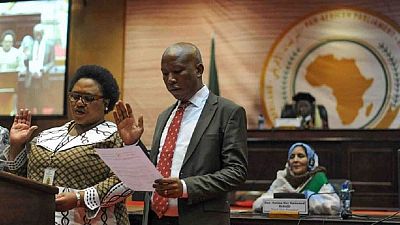

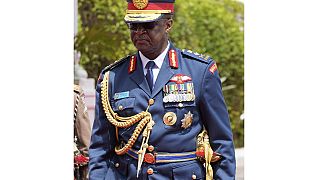
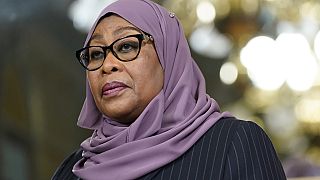

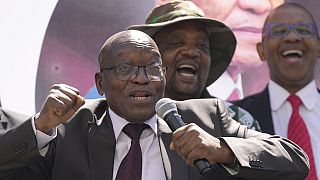
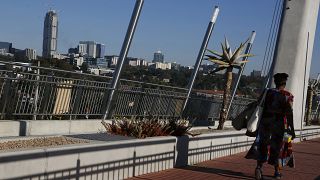

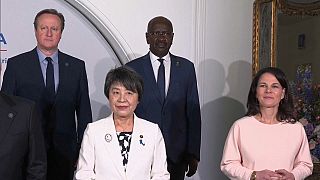
01:30
UN reports widening global inequality in sexual and reproductive health and rights
02:08
South Africa: Zuma's prosecution bid against Ramaphosa postponed
01:10
New poll finds support for South Africa's ruling ANC is plunging
00:53
Six arrested in connection with the murder of South African player Luke Fleurs
01:00
South Africa: Former president Jacob Zuma cleared to run in upcoming elections
Go to video
SA: Extreme winds and rainfall wreak havoc across coastal province, killing at least 1